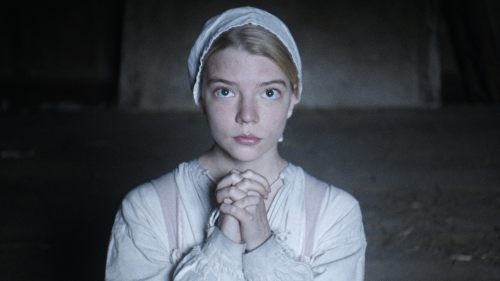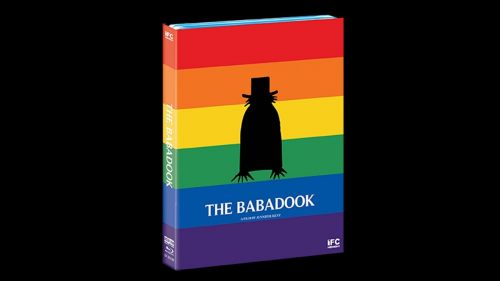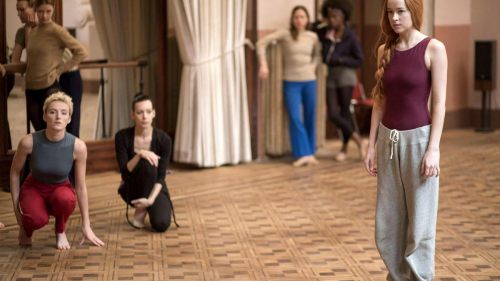Family, Fear And The Supernatural In THE WITCH, THE BABADOOK And HEREDITARY
Hereditary is out now. Get your tickets here!
As many have probably heard by now, Ari Aster's debut Hereditary is pretty scary. It's a slow burning painstakingly detailed film all in service of disturbing the shit out of you. A lot of what makes it work so well can also be found in recent horror films and critical darlings The Witch and The Babadook- both debuts from their respective directors and tales of family units ready to implode, each approached with a slightly different tack.
The idea that grief might make a monster out of you is a common thread between all three of these films, though in Hereditary, the horrors that unfold before an increasingly manic Toni Collette double as a potential musing on the fear of inheriting a family member’s mental illness. It is probably less straightforward thematically when compared to The Babadook, the top-hatted creature (and gay icon) acting as a very specific and blunt metaphor for the lasting trauma caused by the death of Samuel’s father. In both, horror comes from within the family, each film creating an emotional onslaught, as characters unravel from grief and buried resentments are revealed.
Other than his large fancy hat, the Babadook only has a vague resemblance to a man, appearing as a large black spectre throughout. Both Kent’s film and Aster’s present the trauma of loss as a wound that never heals; in The Babadook, Amelia lives in constant denial of her husband’s passing, burying any reminder of him in the basement of her home. The film makes you feel the frustration of raising her son through its editing, as it barrels from one incident to the next, the troubles of each day relentlessly piling up as Amelia becomes increasingly strung out. The presence of the Babadook, and in turn, her anxiety and grief, is marked by constant noise. The film's scares, while plentiful, are a means to an end, committing to its character study of a grieving mother. As a result, The Babadook provides emotional resolution that Hereditary does not.
The Witch is a similarly finely-tuned scare machine - not the kind to make you leap in shock, but the kind that slowly makes your skin crawl with dread. From the moment Thomasin and her family move out into that supposedly ‘godly’ land out in New England, you know that it’s cursed, a cacophony of wails accompanying the first sighting of the woods that surround their farm. Eggers is sparing and precise with how often we actually see the witch; her presence hangs over the family, their continual misfortune leading them to turn on each other.
There’s a feeling of uneasiness that permeates the film’s every moment, the production design and cinematography creating a washed-out colour palette of greys and browns that build this oppressive feeling. As a puritan family, the parents fear that their children may never escape sin - Thomasin and her siblings are reminded throughout that they are born sinful, unworthy of heaven. Katherine (Kate Dickie) even grieves that her baby is in Hell, despite never actually having made a choice.
As Thomasin's family is gradually destroyed, her grief transforms her into the very thing her paranoid, god-fearing parents have accused her of being from the very beginning. The film mostly focuses on Thomasin - Katherine is not quite as complex a character as Annie (Toni Collette) or Amelia (Essie Davis). She mostly appears on the fringes, embodying a fear that both Annie and Amelia share, becoming so paranoid that she violently lashes out at her own child, claiming that the devil has a hold on her. Hereditary shares this fear of a corruption that dwells in the blood, waiting to get out, along with with this sense of inevitability, that the characters are pieces on a board being moved by a malevolent force. Aster makes this literal by beginning the film with an unsettling shot of the family home as a dollhouse. In all three of these films, grief has the potential to twist parent and child alike into something unrecognisable.
By focusing on this domestic horror, The Witch, The Babadook, and now Hereditary, create scares that linger in the mind long after the films have ended. A lot of their power comes from the fact that their fears are based in something very real: the trials of parenthood, and the fear of failing at it. Rather than assaulting with temporary shocks, they allow you to find something terrifying in them. The power of these films come from their invasively real emotional onslaught as well as spooky supernatural imagery, the bone-deep scares emerging from the grueling family drama at their centre.



